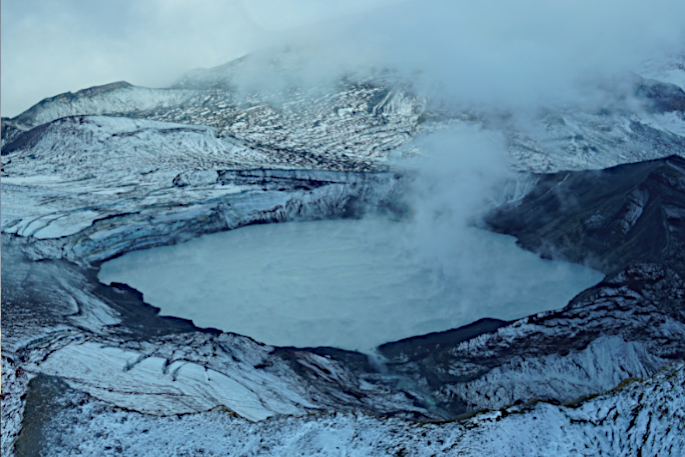The exclusion zone around Ruapehu will be extended if needed, as the Department of Conservation keeps a close eye on safety in the Tongariro National Park.
And, while a big eruption such as the mid-1990s with wider ashfall impacts is considered unlikely at the moment, planning is ongoing for managing the very serious impacts this could have on infrastructure, people's health and animal welfare as volcanic unrest continues.
The Department of Conservation, the lead agency on visitor safety in the park, put in place a two-kilometre exclusion zone around Ruapehu's crater lake six weeks ago.
A map provided by the department shows three and four kilometre exclusion zones that can be introduced as needed.
A senior DOC ranger at Tongariro, Anna Atchley, says the department will be advised by GNS Science on whether the exclusion zone should be bigger.
'We use our volcanic risk management plan to make management decisions with the information provided by GNS.
'We are also working closely with local, regional and national government organisations, as well as key stakeholders and partners...to prepare for an eruption should one occur.”
GNS says ashfall impacts will not occur until the crater lake is 'removed” and this is 'very unlikely”.
The chances of a prolonged eruptive episode or a larger eruption, such as occurred in 1995-96 with wider ashfall impacts, is higher than it was two months ago, but also remains very unlikely, the agency says.
Such an eruption will most likely only follow a sequence of smaller eruptions.
Information in the Waikato Civil Defence Emergency Management Group plan says an eruption of any volcano in the national park, coupled with strong winds from the south, could result in ashfall across parts of the Waikato region.
Lifeline infrastructure – such as electricity generation and transmission, roads and water supplies – could be hit, along with agriculture.
In a sign of the seriousness of the risks, Tom Wilson, a professor of disaster risk and resilience at University of Canterbury, is helping lead a group of experts looking at volcanic ashfall impact scenarios.
'We are working closely with a lot of critical infrastructure companies,” he says, including on being well-prepared for volcanic ashfall.
Ash could potentially short-circuit power transmission and slow transport on roads, for example.
He also says that 'in the case of planning for eruptions from the central plateau volcanoes... one of the things we're always interested in is the physical and chemical composition of ash”.
Samples will need to be collected to help determine the best human and animal health advice in the circumstances, Wilson says.



0 comments
Leave a Comment
You must be logged in to make a comment.